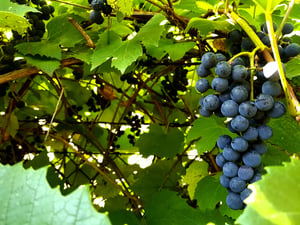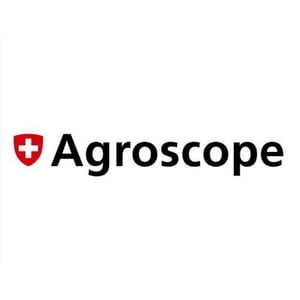Share this
Agroscope joins fields4ever will study impact of the land use and soil pesticide residues
by Juan Vicente Beneitez Lajas on 11/Jun/20
A new project in fields4ever
A new partner has joined fields4ever, AGROSCOPE, with the project " Impact of the land use and soil pesticide residues on the soil and root microbiome " will take action to recover our soil health thank you to fields4ever initiative.
Project explanation
Samples required and project description

The project has been granted with 60 samples to use in vineyards. 30 will be used in conventional fields and 30 in organic fields.
The project will establish farming networks in Switzerland, in vineyards, and will the impact of land use and soil pesticide residues on the soil and plant root microbiome. They will select for each network 10-30 fields under organic management and 10 – 30 fields under conventional management. Soil and plant roots will be selected. DNA will be isolated and fungal and bacterial communities will be assessed. Subsequently, it will be tested which factors (e.g. land use, soil characteristics, fertilization, pesticide residues) influence microbial community traits (richness, microbial network characteristics).
Agroscope

Agroescope is the Swiss center of excellence for agricultural research and is affiliated with the Federal Office for Agriculture (FOAG). Agroscope makes an important contribution to sustainable agriculture and food sector as well as to an intact environment, thereby contributing to an improved quality of life. Agroscope researches along the entire value chain of agriculture and the food sector. Its goals are a competitive and multifunctional agricultural sector, high-quality food for a healthy diet, and an intact environment. In pursuing these aims, the research institute gears itself to the needs of its service recipients.
Head of the project
Marcel van der Heijden
University of Zurich (Switzerland) and he is an honorary professor in Mycorrhizal Ecology at Utrecht University (the Netherlands). He obtained his Ph.D. in 1999 at the Botanical Institute of Basel University, Switzerland, studying the impact plant root symbiont (arbuscular mycorrhizal fungi) diversity on plant diversity, nutrient cycling, and ecosystem functioning.
Share this
- June 2025 (2)
- September 2024 (1)
- August 2024 (1)
- July 2024 (1)
- June 2024 (2)
- May 2024 (2)
- April 2024 (2)
- March 2024 (1)
- February 2024 (1)
- January 2024 (1)
- November 2023 (1)
- October 2023 (1)
- September 2023 (1)
- August 2023 (2)
- July 2023 (2)
- May 2023 (2)
- April 2023 (3)
- March 2023 (3)
- February 2023 (2)
- January 2023 (1)
- November 2022 (1)
- October 2022 (2)
- September 2022 (1)
- August 2022 (3)
- July 2022 (3)
- June 2022 (1)
- May 2022 (5)
- April 2022 (7)
- August 2021 (1)
- July 2021 (1)
- May 2021 (1)
- April 2021 (4)
- November 2020 (3)
- October 2020 (4)
- September 2020 (1)
- August 2020 (3)
- July 2020 (1)
- June 2020 (1)
- May 2020 (2)